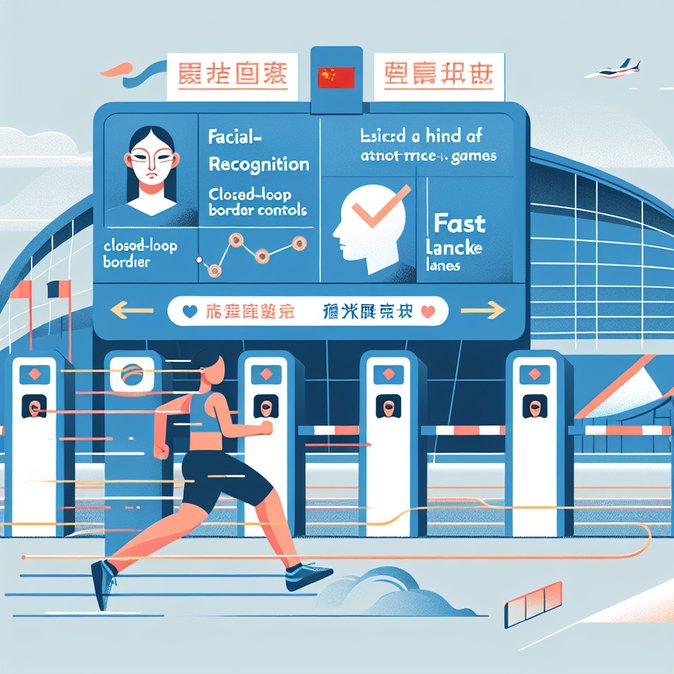
China has officially launched its long-trailed K-Visa, a new immigration category designed specifically for highly-skilled science-and-technology professionals. Effective 10 November 2025, the visa is being positioned as Beijing’s answer to the U.S. H-1B by removing the need for applicants to hold a pre-arranged job offer and by offering a streamlined, points-based path to multiple-year stays in China.
Officials say the scheme is intended to plug persistent skills gaps in AI, advanced semiconductors, biopharma and robotics—sectors that drive the government’s ‘new productive forces’ agenda. Unlike the existing R-class ‘foreign expert’ visa, K-Visa applicants can self-petition if they meet threshold criteria for academic qualifications, patents or recognised industry prizes. The National Immigration Administration (NIA) will run the programme with help from provincial science and technology bureaus, allowing local pilot quotas that can be expanded when labour shortages are proven.
![China Debuts ‘K-Visa’ to Lure Foreign Tech Talent]()
For multinational employers the immediate benefit is flexibility: HR teams can bring in project-based engineers or data scientists without having to secure a Chinese employment contract up-front. Leading mobility firms such as Newland Chase report “three-fold” increases in inbound inquiries from India, Southeast Asia and Europe since Beijing confirmed final rules late last week. Payroll structures will, however, still need to satisfy China’s social-insurance regulations once the employee is onshore, and applicants must pass standard health-check and security screening.
Domestic reaction has been mixed. Chinese graduates faced with a youth unemployment rate hovering around 18 percent worry that imported labour will intensify competition, while industry groups counter that foreign know-how will create spill-over jobs and accelerate the localisation of high-end manufacturing. Analysts warn that language barriers, internet restrictions and an unclear path to permanent residence could temper initial enthusiasm, but most agree the K-Visa is China’s boldest talent-recruitment step since the R-Visa was introduced in 2018.
Practically, mobility managers should update assignment policies to reflect new documentary requirements (notably a notarised résumé and proof of professional achievements) and monitor ministry circulars for quota allocations by province. Early adopters are likely to be Tier-1 tech hubs—Beijing, Shanghai, Shenzhen and Hangzhou—where local authorities have already unveiled one-stop “K-Visa service windows”.
Officials say the scheme is intended to plug persistent skills gaps in AI, advanced semiconductors, biopharma and robotics—sectors that drive the government’s ‘new productive forces’ agenda. Unlike the existing R-class ‘foreign expert’ visa, K-Visa applicants can self-petition if they meet threshold criteria for academic qualifications, patents or recognised industry prizes. The National Immigration Administration (NIA) will run the programme with help from provincial science and technology bureaus, allowing local pilot quotas that can be expanded when labour shortages are proven.

For multinational employers the immediate benefit is flexibility: HR teams can bring in project-based engineers or data scientists without having to secure a Chinese employment contract up-front. Leading mobility firms such as Newland Chase report “three-fold” increases in inbound inquiries from India, Southeast Asia and Europe since Beijing confirmed final rules late last week. Payroll structures will, however, still need to satisfy China’s social-insurance regulations once the employee is onshore, and applicants must pass standard health-check and security screening.
Domestic reaction has been mixed. Chinese graduates faced with a youth unemployment rate hovering around 18 percent worry that imported labour will intensify competition, while industry groups counter that foreign know-how will create spill-over jobs and accelerate the localisation of high-end manufacturing. Analysts warn that language barriers, internet restrictions and an unclear path to permanent residence could temper initial enthusiasm, but most agree the K-Visa is China’s boldest talent-recruitment step since the R-Visa was introduced in 2018.
Practically, mobility managers should update assignment policies to reflect new documentary requirements (notably a notarised résumé and proof of professional achievements) and monitor ministry circulars for quota allocations by province. Early adopters are likely to be Tier-1 tech hubs—Beijing, Shanghai, Shenzhen and Hangzhou—where local authorities have already unveiled one-stop “K-Visa service windows”.


